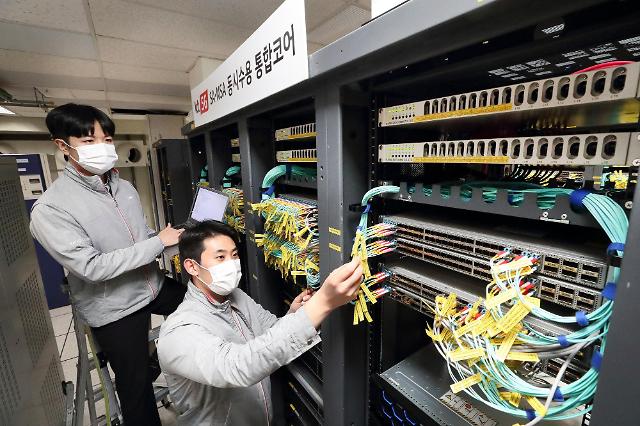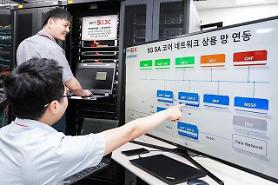
[Courtesy of KT]
SEOUL -- Through cooperation with Samsung Electronics, KT, a major telecom company in South Korea, moved closer to a true 5G service by establishing an integrated core network that can accommodate standalone technology without installing new equipment.
South Korea has pushed hard for the rollout of a 5G network that can improve efficiency in massive data traffic and enable ultra-low latency and much higher capacity without resorting to 4G infrastructure. In 2019, KT and other domestic companies commercialized 5G mobile networks based on non-standalone (NSA) standards, using 4G infrastructure before switching to 5G standalone (SA).
KT said that it has introduced a new technology called "Control & User Plane Segmentation (CUPS) to accommodate NSA and SA standards at the same time. SA services can be realized only by upgrading software for NSA core equipment, the telecom company said, adding it has worked closely with Samsung Electronics, which produces 5G equipment, to apply SA core technologies.
KT said its integrated core network enables a stable and simplified service with the same core equipment. "KT was able to successfully establish a 5G integrated core network for the first time in South Korea by preemptively introducing CUPS," said KT's network research and technology center head Seo Young-soo.
The transition to SA services requires the development and introduction of equipment that meets international standards. In June, KT opened a limited 5G service using SA technology in an actual commercial network in an industrial complex in the northern city of Paju to secure upgraded and uninterrupted SA data communication in a mobile environment.
KT has successfully verified the on-site transmission of data from a self-driving vehicle and a base station using the frequency of 28GHz bandwidth. The 28GHz-based 5G network will make data transmission speed faster especially in areas where traffic is concentrated, such as stadiums and large shopping malls. Essential network services for self-driving cars will be safer.
KT has also developed an open 5G beam-forming base station in the 28GHz band through cooperation with Movandi, a U.S. 5G startup. Beam-forming focuses power to desired users to form beams, expand coverage and increase speed in the 28GHz band.
SK Telecom has completed preparations through successful data communication in a 5G commercial network. The company has applied technologies such as international standard-style network slicing and mobile edge computing (MEC), which provides ultra-low delay and high-speed services regardless of physical distance.
Copyright ⓒ Aju Press All rights reserved.



